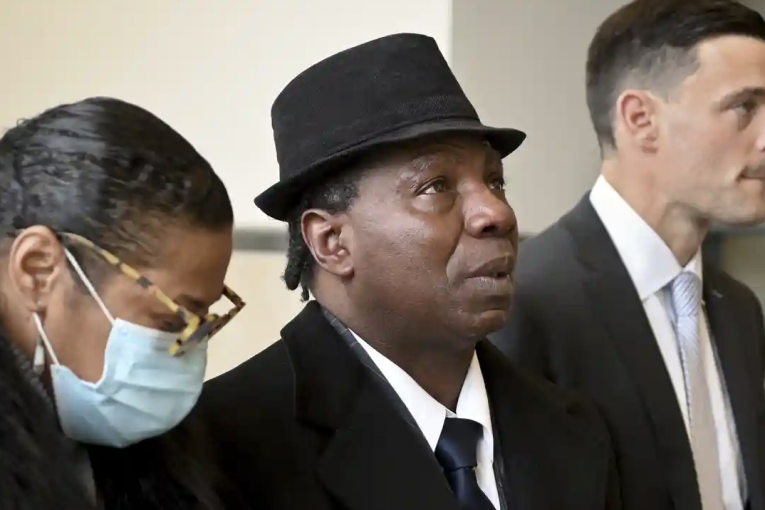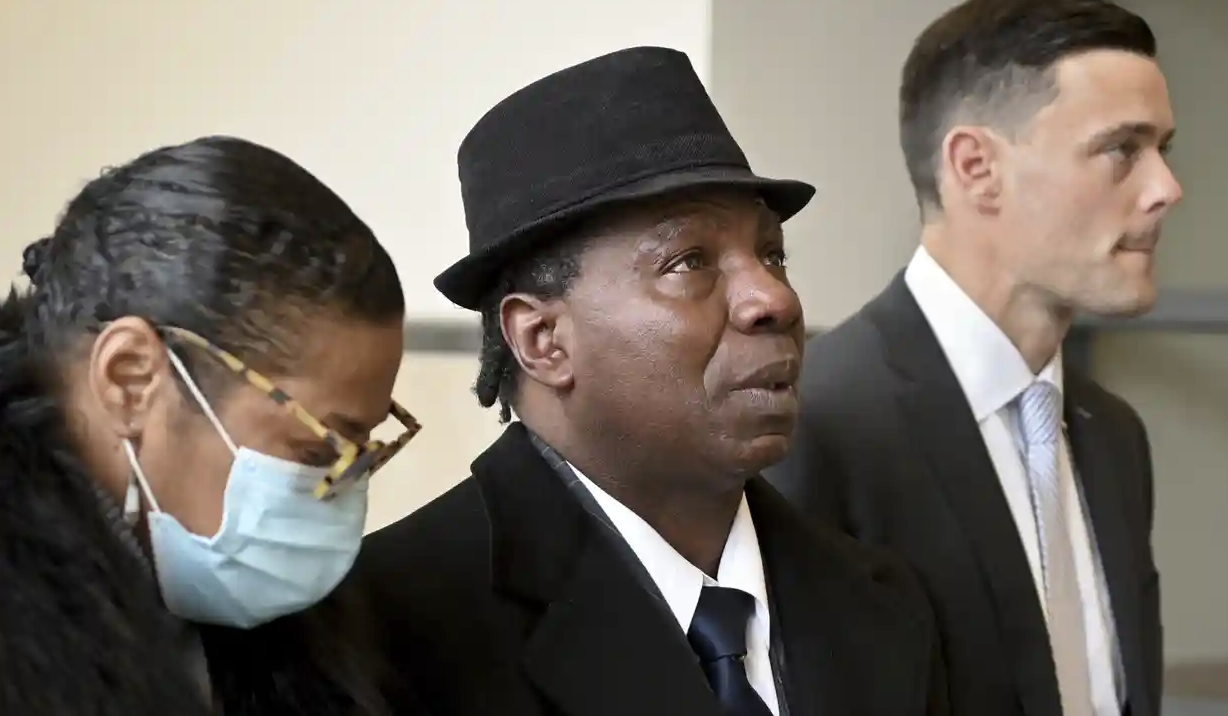

By Matthew Torres and Mathew Seibert
SYRACUSE, NY – After spending more than 16 years in prison and 22 more years on a sex offender registry list for a crime he did not commit, Anthony Broadwater is suing the state of New York for unjust imprisonment. He is seeking $50 million.
Syracruse.com writer Douglass Dowty noted Alice Sebold, who was raped as a freshman at Syracuse University in 1981, wrote a memoir, Lucky, about her experience bringing her perpetrator to justice.
In this memoir she identifies Broadwater as her rapist, which she now admits led to the wrong man being punished.
Broadwater has no intention of stopping with the state of New York, he said. He also plans on suing the Onondaga County District Attorney’s Office and the City of Syracuse police, accusing them of egregious misconduct. 
Broadwater is being represented in both cases by Earl Ward. Ward already has experience handling wrongful conviction cases resulting in multi-million dollar settlements, as well as aiding North Country soccer coach Oral “Nick” Hillary in obtaining a murder acquittal in 2016, Dowty noted.
Ward is working alongside Andrew Celli, Jr., and Max Selver, two of his law partners, as well as David Hammond and Melissa Swartz, Broadwater’s criminal defense team in Syracuse.
Dowty said in his story about the lawsuit, “Mr. Broadwater did nothing to cause his own conviction. In fact, he did everything he could to prove his own innocence. Mr. Broadwater has suffered the consequences of an unjust conviction and imprisonment, and he is due damages from the state of New York…”
The Syracuse.com writer exposed the errors leading to the wrongful conviction of Broadwater, including a citizen on a confidential grand jury being ignored on three separate occasions when warning of prosecutorial misconduct.
The basis for the wrongful conviction was the victim’s cross-racial identification bias of her attacker and misplaced importance in microscopic hair analysis, which is now considered outdated forensic science.
The victim identified Broadwater as her attacker walking down a street five months after her attack. But in a police lineup where the victim was to identify her attacker that night, she chose a man that wasn’t Broadwater. It took the victim’s testimony that her attacker was absolutely Broadwater during trial in 1982.
Broadwater was found guilty and was given a maximum sentence of up to 25 years in prison, and life on the sex offender registry.
When appealing his guilty verdict, an appellate court upheld the decision, ruling that the victim’s error in picking Broadwater out of a police lineup was understandable because the two Black men looked alike.
Broadwater exhausted his options in attempting to prove his innocence but was ignored for decades.
Dowty said the lawyers wrote, “Mr. Broadwater has maintained his innocence ever since his conviction—insisting on a line-up procedure, voluntarily providing biological evidence for testing, testifying on his own behalf, requesting polygraph examination, filing motions and appeals, requesting assistance from numerous attorneys, and denying his guilt at all stages of his incarceration—but his attempts to vindicate himself went unanswered.”
Sebold’s famous book in 1999 led to the interest of a movie producer who questioned if Broadwater was actually the rapist, which in turn led the current DA, William Fitzpatrick, to question Broadwater’s guilt.
Dowty explained that the judge who initially tossed the conviction ruled that there was new evidence that came to light that undercut the case in the 1982 trial.
He explained that in Lucky, Sebold wrote about a prosecutor who inaccurately claimed that Broadwater tricked her into picking the wrong man in the lineup.
He actually had never been in a lineup before and there was no evidence he could have known Hudson before.
Broadwater is now seeking no less than $50 million due to the emotional, psychological and physical pain he had suffered in prison for 16 ½ years, including being on the registered sex offender registry for 22 more, Dowty states.
The Syracruse.com writer then revealed some cases where individuals spent countless years in prison for wrongful convictions, hoping to shed some light on the possibilities of Broadwater’s case.
Roy Brown received $2.1 million after his wrongful conviction of murdering a Cayugna County social worker in 1991.
Daniel Gristwood spent nine years in prison before exonerated for the false confession of attempted murder of his wife. He received $5.5 million which later turned to more than $7 million after the state lost appeals to have the amount overturned.
